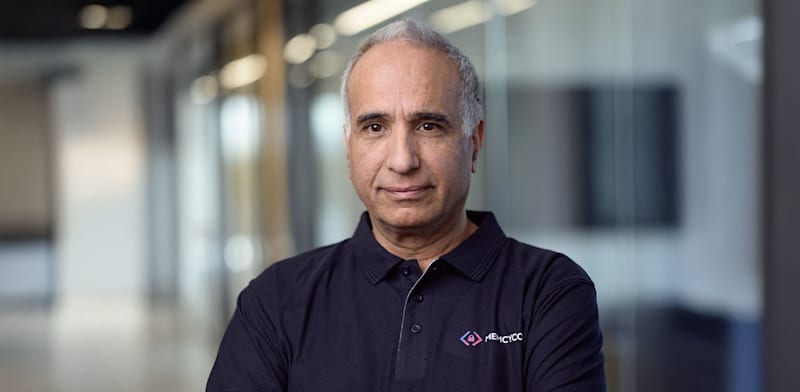When planning your estate, you may have heard that setting up a living trust is one of the best ways to protect your assets. While it’s true that a trust can help your family avoid probate and streamline the transfer of property after you pass away, the question remains: can a living trust actually shield your wealth from creditors? The answer is both straightforward and complicated, depending on the type of trust you create and the timing of when you set it up. Understanding these nuances can mean the difference between preserving your assets for your heirs and watching them go toward unpaid debts.
Can a Living Trust Protect You From Creditors?
What Exactly Is a Living Trust?
A living trust is a legal arrangement in which you transfer ownership of your assets to a trust during your lifetime. You can still manage and use these assets, but the trust technically owns them. This structure allows your property to bypass probate when you die, which can save time, reduce costs, and keep your estate matters private.
There are two main types of living trusts: revocable and irrevocable. A revocable trust allows you to make changes, move assets in and out, or dissolve the trust entirely during your lifetime. In contrast, an irrevocable trust generally cannot be altered once it’s established, and you give up direct control over the assets inside it.
The type of trust you choose plays a critical role in whether creditors can access your assets. Most people who create a living trust opt for the revocable kind because of its flexibility, but that flexibility comes at a price when it comes to creditor protection.
The Truth About Revocable Living Trusts and Creditors
While revocable living trusts are excellent tools for estate planning and avoiding probate, they offer little to no protection from creditors. Because you retain control over the trust and its assets, the law generally views those assets as still belonging to you. That means if you owe money, whether it’s for unpaid bills, medical debt, or a lawsuit, creditors can still pursue the property inside your revocable trust.
This also applies if you pass away with outstanding debts. Your creditors can make claims against your estate, which may include assets held in a revocable living trust. In many states, the probate avoidance benefit of a trust does not override creditor rights. Essentially, if you owe, they can collect, even from your trust.
When an Irrevocable Trust Can Offer Protection
An irrevocable trust operates differently. Once you transfer assets into an irrevocable trust, you no longer legally own them. The trust becomes the owner, and a trustee manages the assets on behalf of the beneficiaries. Because you’ve relinquished control, creditors generally cannot touch what’s inside—unless the trust was created with fraudulent intent to avoid paying debts.
However, there are important caveats. Courts can look back several years to determine if you moved assets into the trust to sidestep creditors. If they find evidence of this, they can reverse the transfer and allow creditors to claim those assets. Additionally, certain debts, such as federal taxes or court-ordered payments, may still have legal avenues to reach trust property.
Irrevocable trusts can be powerful for protecting assets, but they require careful planning, legal guidance, and a willingness to give up direct access to the property.
Special Exceptions: Medicaid and Long-Term Care
For retirees concerned about medical bills and long-term care expenses, an irrevocable trust may help preserve assets when applying for Medicaid. Medicaid has strict income and asset limits, and assets in an irrevocable trust may not count toward those limits if the trust was set up well in advance of applying.
However, Medicaid also has a “look-back period,” usually five years, during which transfers to a trust can be scrutinized. If they determine the transfer was done to qualify for benefits, you may face penalties or delays in eligibility.
This is another reason why timing and professional legal advice are essential. A trust created too late in life may not protect you from medical creditors or nursing home bills.
State Laws Matter More Than You Think
The rules around trusts and creditor claims vary significantly by state. In some states, certain types of trusts—such as spendthrift trusts—offer strong protections against creditors. These trusts restrict a beneficiary’s ability to access or transfer trust assets, which can also prevent creditors from reaching them.
Other states have specific laws that make it easier for creditors to pierce trusts under certain conditions. If you live in a state with weak trust protection laws, even an irrevocable trust might not be enough to shield your assets.
Because trust law is so state-specific, what works in one jurisdiction might fail completely in another. This is why estate planning attorneys often recommend a customized trust tailored to both your financial goals and your state’s legal framework.
Common Misconceptions About Living Trusts and Debt
One of the biggest myths in estate planning is that any trust automatically makes you “judgment-proof.” In reality, most living trusts—especially revocable ones—do nothing to stop creditors from collecting what you owe.
Another common misconception is that a trust can be set up quickly when trouble arises. In practice, last-minute asset transfers often fail to protect property and may even be considered fraudulent. Trusts work best when they’re created proactively, before any legal or financial problems appear.
Finally, some people believe that because a trust avoids probate, creditors can’t find out about it. While probate avoidance can keep your estate more private, it does not erase public records or financial obligations.
Alternatives and Complementary Strategies for Asset Protection
If your primary goal is creditor protection, a trust is only one part of the puzzle. Other strategies may include:
Retirement Accounts: Many retirement accounts, like IRAs and 401(k)s, have strong legal protections from creditors under federal or state law.
Homestead Exemptions: In some states, your primary residence is protected up to a certain value.
Insurance: Liability insurance, umbrella policies, and long-term care coverage can help protect your assets from lawsuits or medical expenses.
Business Entities: Placing investment property or business assets in an LLC or corporation can limit personal liability.
Combining these approaches with a properly structured trust can offer stronger overall protection than relying on a trust alone.
The Bottom Line on Living Trusts and Creditors
So, can a living trust protect you from creditors? If it’s revocable, the answer is almost always no. If it’s irrevocable, it may, provided it’s set up well in advance, comply with state laws and is not created with the intent to defraud creditors.
Living trusts remain valuable estate planning tools for avoiding probate, simplifying asset distribution, and maintaining privacy. But if you’re seeking creditor protection, you’ll likely need more than a standard living trust. This is where an experienced estate planning attorney becomes invaluable, helping you design a strategy that meets both your legacy and protection goals.
Can a Living Trust Really Safeguard Your Wealth From Creditors?
A living trust can be a smart move for organizing your estate, avoiding probate, and making life easier for your heirs. But when it comes to protecting assets from creditors, it’s not a one-size-fits-all solution. Revocable trusts offer flexibility but no creditor protection. Irrevocable trusts can shield assets, but only if created early and structured properly.
The real key is proactive planning—long before financial trouble, lawsuits, or medical expenses threaten your savings. By combining a trust with other legal and financial protections, you can create a stronger defense for your wealth and ensure it’s passed on to the people you choose.
Do you think most people misunderstand what a living trust can actually do when it comes to debt protection?
Read More:
7 Estate Planning Moves That Could Actually Hurt Your Family Later
Why Your Estate Plan Is Useless Without These Two Documents























